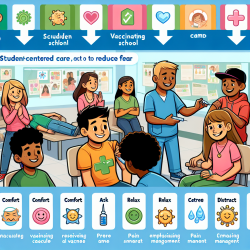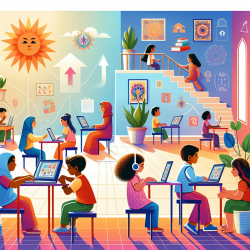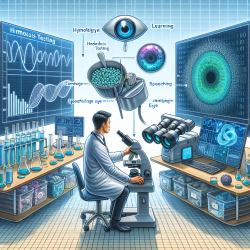School vaccinations are a critical component of public health initiatives, yet they often come with challenges such as fear, pain, and fainting among students. The CARD™ System (C-Comfort, A-Ask, R-Relax, D-Distract) is an innovative Knowledge Translation (KT) intervention designed to address these issues and improve the overall vaccination experience for students.
The Need for Change
Vaccination-related anxiety can lead to increased perception of pain and even refusal of vaccines. This not only affects the immediate health outcomes but can also foster long-term vaccine hesitancy. Recognizing these challenges, a multidisciplinary team developed the CARD™ System to provide a structured approach to mitigate these symptoms through student-centered care.
The CARD™ Framework
The CARD™ System is built around four key components:
- C - Comfort: Creating a comfortable environment for students during vaccination.
- A - Ask: Encouraging students to express their fears and preferences.
- R - Relax: Teaching relaxation techniques to ease anxiety.
- D - Distract: Using distractions to reduce focus on the injection process.
This framework empowers students to take an active role in their healthcare by choosing strategies that best suit their needs during vaccinations.
The Implementation Process
The implementation of the CARD™ System involves several stages:
- Adapting Knowledge: Understanding local contexts and barriers through stakeholder focus groups.
- Selecting Tools: Developing educational videos and pamphlets tailored to students, parents, and school staff.
- Pilot Testing: Conducting trials in selected schools to assess impact on student symptoms and process outcomes.
The results showed significant improvements in reducing symptoms like fear and dizziness among students. However, there was no notable change in vaccination rates, indicating that while the experience improved, further efforts are needed to address vaccine uptake comprehensively.
The Role of Stakeholders
The success of the CARD™ System relies heavily on collaboration between public health units, school staff, parents, and students. By involving all stakeholders in the planning and execution phases, the program ensures that interventions are well-received and effectively implemented. School staff play a crucial role in reinforcing educational content and supporting students during vaccinations.
The Broader Impact
The CARD™ System is not limited to school settings; its principles can be adapted for various healthcare environments where needle procedures are common. By focusing on student-centered care and addressing emotional responses to vaccinations, the system contributes to building trust between healthcare providers and young patients.
Your Next Steps
If you are a practitioner looking to enhance your skills or implement similar interventions in your setting, consider exploring further research on KT projects like the CARD™ System. Engaging with stakeholders and tailoring interventions to meet local needs can significantly improve healthcare delivery outcomes.










